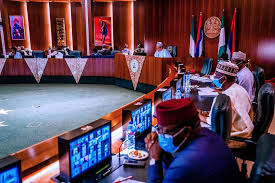News
Sugar-Sweetened Beverages: Industry claim is unfounded – Nigerian Cancer Society, Others

Nigerian Cancer Society, the National Action for Sugar Reduction Coalition (NASR) and civil society organisation has taken a swipe on beverage industries for claiming that the N10 per litre excise tax, introduced on Sugar Sweetened Beverages (SSBs), is having devastating effects on the economy and its consumers.
Speaking on behalf of the group, the President of the Nigerian Cancer Society and Co-chairman, National Action for Sugar Reduction Coalition (NASR), Dr Adamu Alhassan Umar while briefing journalists via zoom said there are no evidence to ascertain that the excise duty has any effect on the industry.

“Beverage industry arguments are unfounded, as indicated by the evidence from countries like South Africa, Mexico and the Philippines, where SSB taxes have been implemented. SSB taxes have not led to job losses and the industry continues to generate profits. SSBs, however, continue to increase the risk of chronic diseases that financially burden families and distress health systems”, Dr Adamu added.
The reaction is coming after the Manufacturers Association of Nigeria (MAN) made claims that the 10 naira per litre excise tax, enacted through the 2021 Finance Act, will kill the beverage sector. They also said that the 10 naira per litre excise tax is already having devastating effects on consumers.
But the contrary, the Coalition insist that the N10 per litre tax is not sufficient to reduce consumption and called for an increase of 20% tax on SSBs.
They stressed that Sugar-Sweetened Beverages are loaded with refined sugars and contain very little or no nutritional value of which consuming them raises the risk of chronic illnesses like type 2 diabetes, high blood pressure, stroke and even cancers.
According to them, diseases associated with consumption of SSBs are very expensive to treat, with humongous financial costs that weigh most heavily on low-income families.
They also stated that it has been scientifically proven that the global burden of Non-commununicable Diseases (NCDs) has been on the increase. A key risk factor for NCDs is, obesity which has a direct link to link to sugar sweetened beverage consumption. Hence an appropriate tax rate on SSBs is an attractive measure to curb the rising trends of NCDs.
The group maintained that Nigeria need more policies that will protect public health and raise revenue for healthcare.
The National Action on Sugar Reduction coalition stressed that the current SSB tax rate must be raised in line with the good intentions of government in order to achieve a significant impact on SSB consumption patterns and, ultimately, a decline in NCDs.
Dr Adamu said “The SSB tax is designed to reduce consumption of these harmful products and ultimately prevent noncommunicable diseases. Increasing SSB taxes will improve the health impact of taxation.
“SSB taxes can improve health by leading consumers to buy less and lowering the risk of noncommunicable diseases”.
He said, if tax revenue is invested, it can relieve the overburdened health system and reduce healthcare costs.

























